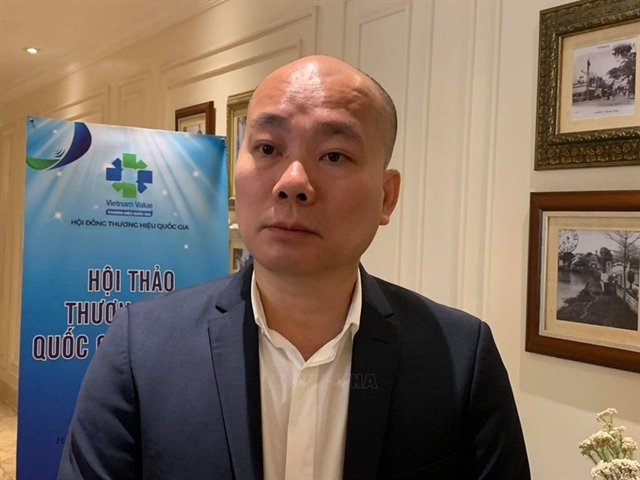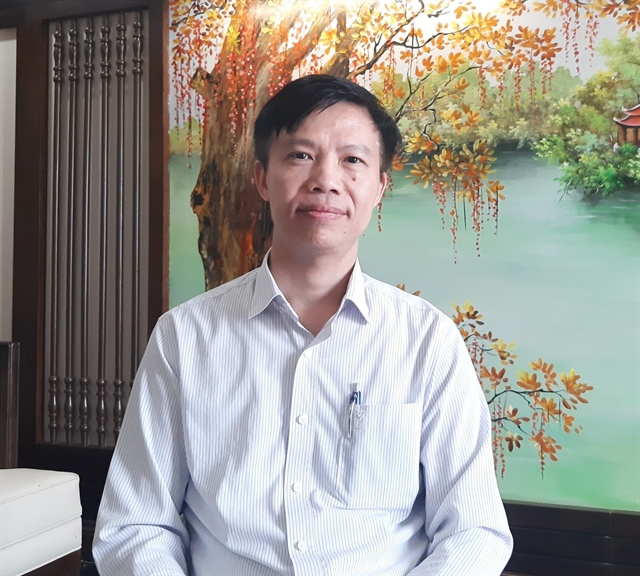 Talking Shop
Talking Shop

 |
| Nguyễn Khắc Văn, Deputy Head of the Hà Nội Department of Industry and Trade’s Energy Management Division |
Hà Nội holds tremendous potential for harnessing renewable energy sources in industrial production, which is considered an inevitable trend for the future. Việt Nam News reporter Tố Như spoke with Nguyễn Khắc Văn, Deputy Head of the Hà Nội Department of Industry and Trade’s Energy Management Division, about this issue.
How do you assess the need and possibility of developing renewable energy in industrial production, especially in the supporting industries, in Hà Nội?
The utilisation of renewable energy is an inevitable trend, applicable not only to supporting industries but also to all businesses. However, the existing policies are still insufficient, particularly after the Prime Minister's Decision No. 13/2020/QD-TTg, which includes certain outdated provisions. For example, there is no incentive mechanism for electricity prices, no preferential price mechanism known as FIT, and the decision on connection no longer applies to all solar power projects with commercial power generation.
Nonetheless, the Prime Minister's Decision No. 500/QD-TTg on May 15 this year, which approves the National Power Development Plan for the period of 2021-30 with a vision to 2050, has opened up avenues for renewable energy development. Moreover, in the context of electricity shortages in the North, the development of renewable energy sources, especially rooftop solar power, is unrestricted. This presents a favourable opportunity for businesses to access and utilise energy resources.
The use of renewable energy offers numerous advantages. From a power grid perspective, it reduces the electrical load by eliminating the need for transmission from remote sources, thereby improving investment efficiency and benefiting the grid infrastructure while meeting local demand.
Investing in renewable energy fosters a mutually beneficial relationship: revenue for businesses providing solutions and equipment, and cost benefits for businesses investing in renewable energy. In the long run, manufacturing enterprises that utilise green energy receive certificates of sustainable development, enhancing their competitiveness when supplying products to the market.
Recently, GreenYellow Vietnam has introduced the ESCO model – solution that supports businesses to install solar power for zero đồng – in which the group fully invests in building solar power systems for businesses and factories nationwide. Enterprises can use the on-site electricity generated by the system at a lower price, enjoying a discount of 10-20 per cent compared to EVN's electricity price. However, certain conditions apply, such as a factory size of 5,000 m2 or more and an electricity bill amounting to VNĐ500 million or more. What are your thoughts on this?
GreenYellow has entered Việt Nam as an investor with their own goals and client portfolio. As a fund, they must adopt a secure business approach and have limitations on their customer base. Hence, they have established specific regulations regarding factory size and electricity usage. Some businesses may have large factories, such as those in the textiles and clothing industry, but with low power consumption, making them ineligible as customers. In this case, the criteria require supporting industry enterprises with specific production characteristics and industrial scale, ensuring their electricity usage aligns with their revenue level.
The legal conditions regarding factories for enterprises that meet the aforementioned criteria are clear. However, it is indeed challenging for small and micro enterprises in Hà Nội to fulfill the factory size requirements. Considering this, apart from GreenYellow, there are other alternative solutions available. For instance, MB Bank offers a similar model. Smaller businesses that do not meet GreenYellow's investor criteria can access the banking system, receive comprehensive consultations, and fully understand their rights and benefits. With these options, they can actively develop rooftop solar power without relying on investors.
In the northern region, where solar investment efficiency is relatively low, the payback period is approximately seven years. Therefore, we have multiple solutions to enable small, medium and even micro enterprises to adopt the rooftop solar power model.
What are the major challenges businesses face in implementing rooftop solar power?
There are indeed numerous difficulties. Firstly, the lack of announced policies poses a significant challenge. Although the Prime Minister approved Decision No. 500/QD-TTg, the Ministry of Industry and Trade, which was assigned to provide guidance, has yet to define what constitutes self-produced, self-consumed solar energy. The absence of a transparent definition creates a hurdle for businesses.
Additionally, there are other policy-related factors. For example, when businesses decide to invest and approach banks for loans, the availability of incentives and other related details remain unclear.
In Hà Nội, renewable electricity is being developed, particularly in the form of garbage and biomass electricity. The government has made decisions regarding fixed-price purchasing of electricity from these sources over a specified duration without output restrictions. While we have clear incentives for garbage power plants, such clarity is lacking for rooftop solar power for businesses.
Thirdly, implementation issues pose challenges as well. Businesses are uncertain about electrical safety regulations, fire and explosion safety requirements, and how their personnel and equipment will comply with them.
Another challenge pertains to the unpredictable weather in the northern region. When it's sunny, sudden wind or rain can cause an immediate drop in solar output, potentially straining the capacity of the power system. This becomes a difficult problem not only for businesses but for the entire city's power grid system.
From a local perspective, what specific recommendations do you have to address these difficulties and foster the development of rooftop solar power for businesses?
In previous years, when recognising the challenges faced in renewable energy development, Hà Nội actively implemented a solar energy potential assessment project.
Hà Nội does possess significant potential. According to the completed project conducted by the Institute of Energy, Hà Nội has a solar power potential exceeding 1,400 MW, which is comparable to the capacity of the Hòa Bình Hydropower Plant. This is a substantial figure. However, the installed capacity currently stands at only 33 MW, which is quite modest.
We have identified the reasons behind this disparity and have submitted numerous documents to the Ministry of Industry and Trade. However, as a local authority and implementing agency, we must await guidance from the central authority.
Hà Nội has also developed programmes for renewable energy development plans and has encouraged both individuals and businesses to actively pursue solar energy initiatives. However, due to inconsistent policies, we lack more specific guidelines.
We have recently received inquiries from businesses in the city regarding self-investment and the implementation of solar power systems. Unfortunately, we can only respond that the policy remains unclear, and investors must wait. However, waiting implies wasting time. We are eager to share our hopes that the policy will be clarified within a certain timeframe.
We firmly believe that once the policy uncertainties are resolved, Hà Nội will experience a solar power boom. – VNS




